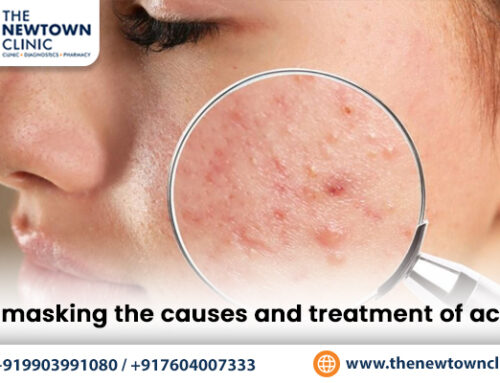Laser hair removal is a medical procedure that extracts unwanted hair using a concentrated light beam (laser), says an expert of laser hair removal in Newtown, Kolkata.
A laser emits light absorbed by the pigment (melanin) in the hair during laser hair removal. The light energy is transformed into heat, damaging the hair-producing tube-shaped sacs within the skin (hair follicles). This damage stops or postpones future hair growth.
Although laser hair removal can effectively delay hair growth for extended periods, it rarely results in permanent hair extraction. Multiple laser hair removal therapies are needed for initial hair extraction and one may also require maintenance treatment. Laser hair removal works ideally on individuals with light skin and dark hair, but it can be used on all skin types.
Why is it done?
Laser hair removal is a process of extracting unwanted hair. Legs, chin, upper lip, armpits and the bikini line are popular treatment areas. Other than the eyelid and surrounding area, unwanted hair can be removed from nearly any part of the body. Tattooed skin should not be treated either.
The success of laser hair removal is impacted by the hair color and skin type. The basic idea is that the pigment in the hair should absorb light, but not the pigment in the skin. The laser should only damage the hair follicles while causing no harm to the skin. As a result, a contrast in hair and skin color — dark hair and light skin — produces the best results, says the specialist of skin hair removal in Kolkata.
When there is little contrast between hair and skin color, the risk of skin damage increases, but advancements in laser technology have made laser hair removal an option for individuals with darker skin. Laser hair removal is less effective on hair colors that absorb light poorly, such as grey, red, blond and white.
How do you prepare?
Choose a board-certified doctor in a specialty such as dermatology or cosmetic surgery who has experience with laser hair removal on your skin type. If the procedure is performed by a physician assistant or a licensed nurse, make sure that a doctor supervises the treatments.
Before undergoing laser hair removal, consult a doctor to determine if this is the best treatment option. Your doctor will almost certainly do the following:
- Review your medical history, including medication use, skin conditions or scarring and previous hair removal procedures
- Discuss the risks, advantages and expectations of laser hair removal and what it can and cannot do for you
- Take photos for before-and-after comparisons and long-term evaluations
In addition, the doctor will provide specific instructions for preparing for laser hair removal. These could include:
Keeping away from the sun
Avoiding sun exposure before and after treatment should be done by your doctor’s recommendations. Apply a broad-spectrum SPF30 sunscreen every time you go outside, says the specialist of skin hair removal in Kolkata.
Skin lightening
Any skin creams that darken your skin should be avoided. If you have a recent tan or darker skin, your doctor can also prescribe a skin bleaching cream.
Other methods of hair extraction should be avoided
Plucking and waxing can cause hair follicle disruption and should be avoided for at least four weeks before treatment.
Treatment area for shaving
The day before laser treatment, it is recommended that you trim and shave. It removes hair above the skin, which can cause surface skin damage from burnt hairs, but it leaves the hair shaft intact under the skin, says the expert of laser hair removal in Newtown, Kolkata.








Leave A Comment